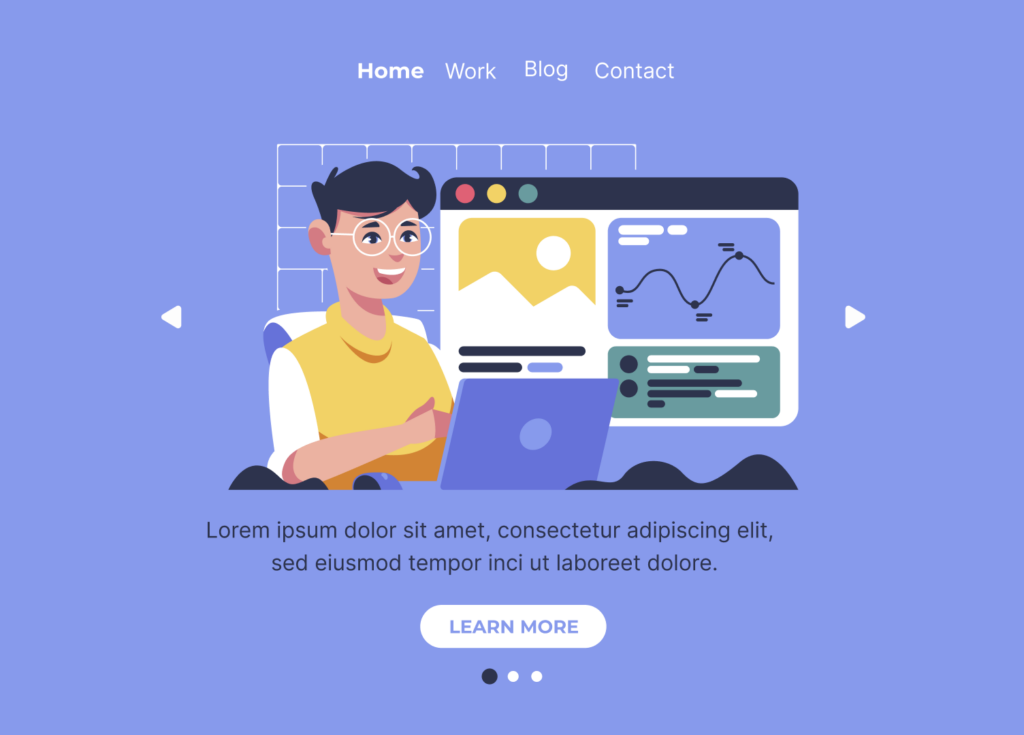
The summer is right on top, and it is quite difficult to find a person who doesn’t love to travel in this wonderful season. Today, we can book our tickets, hotel, and plan our entire trip without moving out from couch all thanks to travel websites which make travel so easy.
On the other hand, companies operating in the tourism sector have a lot of opportunities like never before. Travelers love personalized experiences and if you want to offer something like that then a user-friendly website is the bare minimum you will need to achieve this feat.
So, in this blog we will discuss how to make a good website for travel agencies in 2024. We will be covering all the necessary features, website design, and all the necessary steps3 that will help you build a good travel website.
Understanding different types of travel website
Travel websites come in various forms, catering to different aspects of the journey. From booking tickets to finding the perfect accommodation and exploring entertainment options, these platforms simplify travel planning. Here’s a glimpse into the diverse types:
- Ticket Booking
Ticket booking websites streamline the process of securing flights, trains, buses, or other modes of transportation. They offer convenience, comparison tools, and sometimes even exclusive deals, ensuring travelers find the best options for their journey.
- Accommodation
Accommodation websites present a plethora of choices, ranging from hotels and resorts to rental properties and homestays. With detailed descriptions, reviews, and photos, they empower travelers to book accommodations that suit their preferences and budget, enhancing their overall travel experience.
- Aggregators
Aggregator websites compile information from various sources, providing comprehensive insights into travel options. They offer a one-stop platform for comparing prices, schedules, and amenities across multiple airlines, hotels, and other service providers, enabling travelers to make informed decisions efficiently.
- Food
Food-focused travel websites offer gastronomic experiences, guiding travelers to local eateries, restaurants, and food markets. They showcase culinary delights, recommend must-try dishes, and share insider tips on where to indulge in authentic flavors, enriching travelers’ culinary adventures wherever they go.
- Entertainment
Entertainment websites curate a range of activities and attractions, ensuring travelers make the most of their destination. From popular tourist spots to hidden gems, they highlight cultural events, outdoor adventures, and leisure activities, helping travelers create memorable experiences beyond sightseeing.
How to build a travel website in 2024?
Selecting the right domain name
Choosing a domain name for your travel agency website is crucial. Keep it simple and memorable. Look out for names that end with suffixes like .com, .net, or .org. You can check out Siteground as it offers affordable domain registration options. A clear domain name not only leaves a good impression but also helps with SEO. Make sure it reflects your brand and services. Avoid using complicated words or numbers.
Define your target audience & goals
Before diving into website development, it’s crucial to understand who your target audience is and what goals you aim to achieve with your travel website. Are you catering to budget-conscious backpackers, luxury travelers, families, or adventure seekers? Define demographics, interests, and pain points to tailor your website accordingly. Establish clear objectives, whether it’s increasing bookings, boosting engagement, or building brand awareness, to guide your website development process effectively.
UI/UX Design

The user interface (UI) and user experience (UX) design of your travel website play a pivotal role in attracting and retaining visitors. Create a visually appealing layout that reflects your brand identity and resonates with your target audience. Prioritize intuitive navigation, ensuring visitors can easily find information and complete desired actions such as booking flights or accommodations. Optimize mobile responsiveness to accommodate users accessing your website from various devices. Pay attention to accessibility standards to ensure inclusivity for all users.
Content
Compelling content is the heart of any successful travel website. Develop high-quality content that captivates and informs your audience, inspiring them to explore new destinations and embark on memorable journeys. Incorporate engaging visuals, including stunning photographs and videos, to showcase destinations and experiences effectively. Craft informative articles, travel guides, and blog posts that provide valuable insights, tips, and recommendations to travelers. User-generated content such as reviews and testimonials can also enhance credibility and trustworthiness.
Features
Selecting the right features for your travel website is essential to provide a seamless and comprehensive user experience. Implement search functionality that allows users to easily find flights, hotels, and activities based on their preferences and criteria. Integrate booking systems that enable users to make reservations directly through your website, facilitating a hassle-free booking process. Interactive maps can help users visualize destinations and plan their itineraries effectively. Incorporate user reviews and ratings to provide social proof and aid in decision-making.

Budget
Creating a travel website involves various expenses, from domain registration and hosting to design and development. Define a realistic budget that considers both initial setup costs and ongoing maintenance expenses. Prioritize investments based on your goals and audience needs, allocating resources to areas that will have the most significant impact on your website’s success. Factor in marketing expenses to promote your website and attract visitors, ensuring a balanced approach to budget allocation.
Advanced features
To stay ahead of the competition and deliver exceptional user experiences, consider incorporating advanced features into your travel website. Personalization features such as tailored recommendations based on user preferences and behavior can enhance engagement and satisfaction. Integrate social media functionality to allow users to share their travel experiences and connect with fellow travelers.
Loyalty programs and rewards systems can incentivize repeat bookings and foster customer loyalty. Continuously monitor industry trends and technological advancements to identify opportunities for innovation and improvement in your website’s features and functionalities.
Development & core feature integration
Once you’ve outlined your project’s specifications and selected your tech stack, it’s time to delve into development and integrate core features. Working with an experienced software partner streamlines this process. Your development team will execute the agreed-upon functionalities outlined in the Statement of Work, which documents all expected outcomes. This may involve features enabling users to discover destinations, book flights, hotels, or packages tailored to their preferences. Implement search engines for seamless bookings and integrate social media apps for easy sharing across platforms.
How much does it cost to make a travel website?
Determining the cost of developing a travel website depends on various factors such as features, complexity, design, and development time. Utilizing an website development cost calculator can provide an estimate tailored to your specific requirements. By adding the details into the calculator, you can get a rough estimate of the total development cost without having to delve into specific numbers. However, keep in mind that the final cost may vary based on project scope, revisions, and any unforeseen challenges during development.










